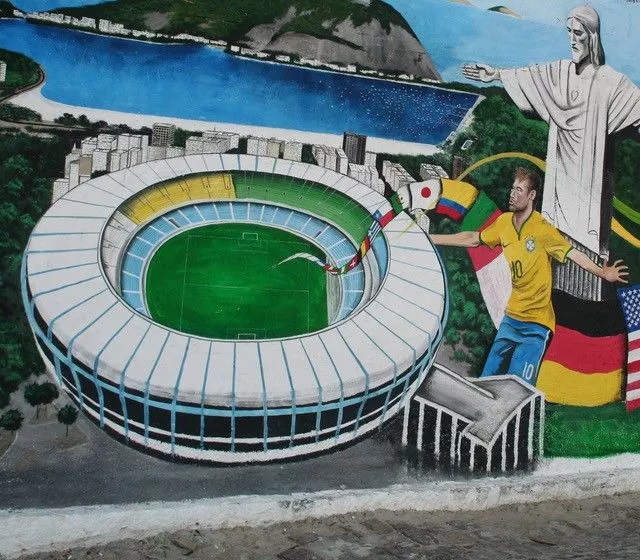Background and Objective of the Study
This study looks at the 2014 FIFA World Cup and the host city population in Rio de Janeiro. It compares two contexts within the same city: the context before the hosting of the 2014 FIFA World Cup and the context during the hosting of the event. Like carnival, soccer in general and the hosting of the 2014 FIFA World Cup in Brazil in particular play a special role in Brazilian society: the role of identity construction (e.g., as Brazilians and as the land of football and fiestas), the role of highlighting and overturning existing hierarchies and conventions (e.g., residents claiming the city for their purposes and protesting against politics and social inequality), and the role of showing the world on a global stage the cultural and social diversity and complexity of the country, including social problems that exist in society.
Design and Results
Data were collected via in-person intercept surveys from 221 and 218 cariocas before and during the event, respectively. There was an increase in subjective wellbeing from before the event to during the event, looking at two demographically similar samples of residents during (vs. before) the hosting of the 2014 FIFA World Cup. The study identifies perceived celebrative atmosphere in the host city as one predictor of higher levels of subjective well-being of host city residents at the time when the event actually happens in their place of residence (with a stronger influence compared to before). Thus, it provides empirical evidence for the “feelgood effect” of the event hosting and the importance of non-sport game-related features in creating this effect. The study demonstrates that the celebrative atmosphere in the city during the hosting of mega-sport events can have positive effects on the city’s residents, yet not all residents are affected equally. The positive perception of the celebrative atmosphere in the city causes host city residents to rate their subjective well-being higher at times when the event is taking place. At the same time, the negative perception may reduce subjective well-being for those residents who perceive the atmosphere in the city negatively.
Implications
Based on the results of our study, public health representatives, municipality officials, and event organizers are advised to work together in order to promote a stimulating and exciting atmosphere in the host city of mega-sport events. If host city residents perceive the atmosphere in their city positively, residents’ subjective well-being may increase. It can be further recommended that the stakeholders emphasize and use the atmospheric and festive elements in a city to motivate residents to participate in community oriented events, take health-related actions (e.g., volunteer in the community, be more physically active, increase fitness and health literacy), and hence promote life satisfaction of host city residents. The results may indicate that a city can still provide structures to its residents that make their life more enjoyable outside of the hosting context. Thus, city representatives may implement strategies (e.g., install volunteer programs for both sport and non-sport activities, have a full calendar of cultural activities in different communities) to make sure that city atmosphere levels are continuously high. Also, open spaces such as green parks and water areas (e.g., rivers, lakes, and sea) that can be accessed by individuals for free provide good opportunities for leisure engagement.
Contact
Chair of Sport and Health Management
Prof. Dr. Jörg Königstorfer
Team assistant: Mirjam Eggers
Uptown München Campus D
Georg-Brauchle-Ring 60/62
80992 Munich
Phone +49.89.289.24559
Fax +49.89.289.24642
info.mgt@sg.tum.de
